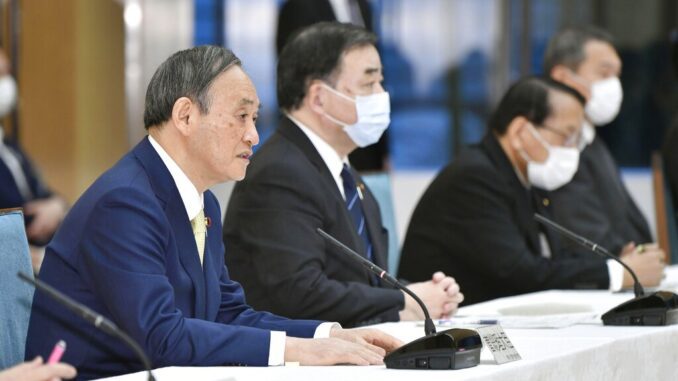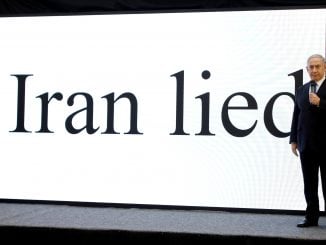
TOKYO — Japan’s government decided Tuesday to start releasing massive amounts of treated radioactive water from the wrecked Fukushima nuclear plant into the Pacific Ocean in two years — an option fiercely opposed by local fishermen and residents.
The decision, long speculated but delayed for years due to safety concerns and protests, came at a meeting of Cabinet ministers who endorsed the ocean release as the best option.
The accumulating water has been stored in tanks at the Fukushima plant since 2011, when a massive earthquake and tsunami damaged its reactors and their cooling water became contaminated and began leaking.
Prime Minister Yoshihide Suga said the ocean release was the “most realistic” option and that disposing the water is “unavoidable” for the decommissioning of the Fukushima plant, which is expected to take decades.
Government officials say tritium, which is not harmful in small amounts, cannot be removed from the water, but all other selected radionuclides can be reduced to levels allowed for release. Some scientists say the long-term impact on marine life from low-dose exposure to such large volumes of water is unknown.
Japan will abide by international rules for a release and obtain support from the International Atomic Energy Agency. China and South Korea have raised serious concern about the discharge of the water and its potential impact.



